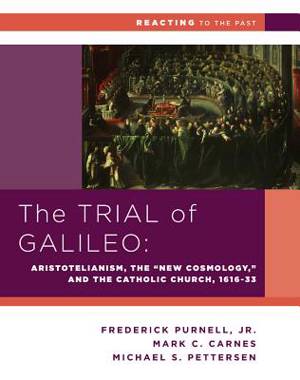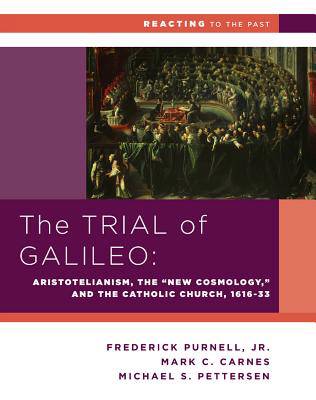
Je cadeautjes zeker op tijd in huis hebben voor de feestdagen? Kom langs in onze winkels en vind het perfecte geschenk!
- Afhalen na 1 uur in een winkel met voorraad
- Gratis thuislevering in België vanaf € 30
- Ruim aanbod met 7 miljoen producten
Je cadeautjes zeker op tijd in huis hebben voor de feestdagen? Kom langs in onze winkels en vind het perfecte geschenk!
- Afhalen na 1 uur in een winkel met voorraad
- Gratis thuislevering in België vanaf € 30
- Ruim aanbod met 7 miljoen producten
Zoeken
The Trial of Galileo
Aristotelianism, the "New Cosmology," and the Catholic Church, 1616-1633
Michael S. (Washington and Jefferson College) Petterson, Frederick, Jr. (Queens College) Purnell, Mark C. (Barnard College) Carnes
€ 39,45
+ 78 punten
Omschrijving
Part of the Reacting to the Past series, The Trial of Galileo brings the Scientific Revolution to life by sparking debate on issues of science and religion.
Specificaties
Betrokkenen
- Auteur(s):
- Uitgeverij:
Inhoud
- Aantal bladzijden:
- 224
- Reeks:
Eigenschappen
- Productcode (EAN):
- 9780393937343
- Verschijningsdatum:
- 24/10/2014
- Uitvoering:
- Paperback
- Afmetingen:
- 274 mm x 219 mm
- Gewicht:
- 536 g

Alleen bij Standaard Boekhandel
+ 78 punten op je klantenkaart van Standaard Boekhandel
Beoordelingen
We publiceren alleen reviews die voldoen aan de voorwaarden voor reviews. Bekijk onze voorwaarden voor reviews.









